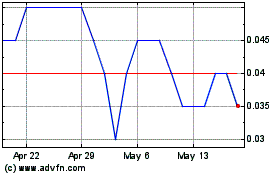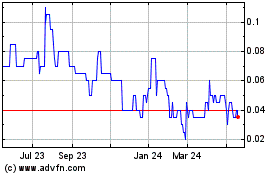Hemlo Explorers Inc. (the “Company”) (TSXV: HMLO) is pleased to
provide an update on the summer work program at Project Idaho,
which is located three kilometres east of Generation Mining’s
Marathon Palladium Copper Deposit (“Marathon Pd-Cu Deposit”)
(Figure 1).
Highlights of the 2022 program included:
- Field programs were completed by
late August and consisted of detailed mapping, prospecting and rock
sampling;
- Soil sampling was completed in late
October;
- Government sourced high-definition
LiDAR was structurally interpreted and integrated with the evolving
geological interpretation; and
- A 321 line-kilometre
helicopter-borne VTEM and horizontal magnetic geophysical survey
was flown in August and a preliminary interpretation has been
received. The final interpretation is expected shortly.
Project Idaho lies on the eastern margin of the
Coldwell Complex (“CWC”), within a structurally complex transition
zone consisting of Coldwell-style intrusive gabbros and Archean
metavolcanics. The intrusive gabbros are similar to those hosting
the Marathon Pd-Cu Deposit to the northwest and have been
geochemically “fingerprinted” as potential hosts for Coldwell-style
PGE-Cu sulfide mineralization. They occur most prominently along
regional structures that are genetically linked to the uplift and
collapse of the Coldwell Complex caldera, producing a criss-cross
pattern of both radial and concentric faulting. Exploration and
targeting on Project Idaho has focused on a geological model in
which sulfide-bearing gabbroic magmas traveled along these fault
“conduits” from the Coldwell Complex into the Archean metavolcanic
country rocks. A similar “magma conduit deposit model” has been
used to explain mineralization at the Marathon Pd-Cu Deposit,
Noril’sk nickel mine in Russia, and the Voisey’s Bay nickel mine in
Newfoundland.
Figure #1 – Project Idaho Location
Maphttps://www.globenewswire.com/NewsRoom/AttachmentNg/d94ed3b4-22b8-4e42-bdc7-3542d431328e
A total of 341 grab samples were taken from the
field this summer and analyzed for platinum (“Pt”),
palladium(“Pd”), and gold (“Au”). Seven samples returned anomalous
platinum values between 10 and 29 ppb, five samples returned
anomalous palladium values between 11 and 25 ppb and eleven samples
returned anomalous gold values between 20 and 268 ppb (Figure 2).
Anomalies in all three precious metals were evident in certain
areas, suggesting a confluence of concentric and radial faults or
possibly their complex intersections, as interpreted from LiDAR
imagery. This supports the geological model for emplacement of
PGE-bearing magmas along conduits emanating from the Coldwell
Complex. Numerous samples also contained anomalous copper (”Cu”),
nickel (“Ni”) and chromium (“Cr”) greater than 100 ppm (Figure 3)
coincident with the precious metal enrichment. This further
suggests emplacement of primary igneous magmas laden with
PGE-bearing sulfides emanating from the proximal Coldwell
Complex.
Figure #2 – Anomalous Au, Pd, Pt Rock
Sampleshttps://www.globenewswire.com/NewsRoom/AttachmentNg/63301ac1-dc30-428a-9be8-6a8f68f25f99
Figure #3 – Anomalous Ni, Cr, Cu Rock
Sampleshttps://www.globenewswire.com/NewsRoom/AttachmentNg/13fc133d-0648-4707-9e50-f99de216212f
Dr. David Good of Western University, the
preeminent expert in Mid-Continent Rift (“MCR”) geochemistry, has
conducted a comprehensive comparison of a subset of Project Idaho
intrusive rocks to the same mineralized rocks of the Coldwell
Complex as well as the larger MCR database. His initial geochemical
interpretation of Project Idaho samples identified seventeen
samples that displayed overlapping Rare Earth Elements (REE)
patterns to those of the mineralized Coldwell Complex “Marathon
Series” rocks (see Figures 2 and 3). Marathon Pd-Cu Deposit’s “Two
Duck Lake gabbro” also displays the same geochemical “fingerprint”,
which is very compelling evidence that gabbros within Project Idaho
are genetically linked to those of the neighbouring Marathon Pd-Cu
deposit.
Based on the local geology and preliminary
interpretations of the VTEM and magnetic data, two potential PGE-Cu
targets, Idaho_A1 and Idaho_A2, have been identified in the Eastern
Gabbro Suite. Three (3) potential VMS targets Idaho_B1, Idaho_B2,
and Idaho_C1, have also been identified, and potentially, the
Idaho_B1 and Idaho_B2 targets could have gold mineralization
(Figure 4). The inferred eastern boundary of the Coldwell Complex
is also displayed in Figure 4.
Figure #4 – Preliminary PGE-Cu and VMS-Au
Targets & Eastern Boundary of the Coldwell
Complexhttps://www.globenewswire.com/NewsRoom/AttachmentNg/684d09ea-77c2-4fcc-81cd-4bf30c0c6945
Idaho_A1 is NS trending in the
Eastern Gabbro along the eastern margins of the Coldwell Complex
and measures approximately 250 metres wide and 2,300 metres long.
Preliminary plate modelling of the conductors shows moderate to
high conductance with sub-horizontal conductors ranging between 45
and 133 metres below surface and which could be open at depths.
Idaho_A2 is located at the SW
corner of the VTEM survey area, has moderate conductance and is
sub-horizontal at a depth of 144 metres below surface.
Idaho_B1 is in the southern
region of the VTEM survey, has high conductance and measures
approximately 200 metres by 300 metres. The conductor is
sub-horizontal and located at approximately 41 metres below
surface.
Idaho_B2 is located in the NE
corner of the grid, trends NS and measures approximately 250 metres
in width and 1,750 metres in length. The conductors have moderate
to high conductance. The modelled conductors lie between 9 and136
metres below surface and are sub-horizontal.
Idaho_C1 is located in the NE
corner of the VTEM survey and exhibited a low conductance.
Brian Howlett, CEO of Hemlo Explorers, commented
“We are pleased to have moved Project Idaho ahead during the 2022
exploration season. We expect to have received all outstanding data
and final interpretation by the end of the calendar year. We look
forward to moving to the drill stage in the coming exploration
season.”
Technical Information
Mr. Adrian Bray, P.Geo., Exploration Manager for
the Company, is the “Qualified Person” as defined by National
Instrument 43-101 Standards of Disclosure for Mineral
Projects, responsible for the accuracy of technical information
contained in this news release.
About Hemlo Explorers Inc.
Hemlo Explorers is a Canadian-based mineral
exploration company with a portfolio of properties in Ontario and
Nunavut. We are primarily focused on generating shareholder value
through the advancement of our main Hemlo area projects, including
Project Idaho, the Pic Project (optioned to a subsidiary of Barrick
Gold Corporation), and the North Limb.
For more information please contact:
Brian Howlett, President & CEOHemlo
Explorers Inc.brian@hemloexplorers.ca +1 (647) 227-3035
http://www.hemloexplorers.ca
Forward-Looking Statements
Certain information set forth in this news
release may contain forward-looking statements that involve
substantial known and unknown risks and uncertainties, including,
but not limited to, exploration results, potential mineralization,
statements relating to mineral resources, and the Company’s plans
with respect to the exploration and development of its properties.
These forward-looking statements are subject to numerous risks and
uncertainties, certain of which are beyond the control of Hemlo
Explorers Inc., including, but not limited to, the impact of
general economic conditions, industry conditions, volatility of
commodity prices, risks associated with the uncertainty of
exploration results and estimates, currency fluctuations,
dependency upon regulatory approvals, the uncertainty of obtaining
additional financing, exploration risk and Covid-19 pandemic
related orders. Readers are cautioned that the assumptions used in
the preparation of such information, although considered reasonable
at the time of preparation, may prove to be imprecise and, as such,
undue reliance should not be placed on forward-looking
statements.
Hemlo Explorers (TSXV:HMLO)
Historical Stock Chart
From Dec 2024 to Jan 2025

Hemlo Explorers (TSXV:HMLO)
Historical Stock Chart
From Jan 2024 to Jan 2025
